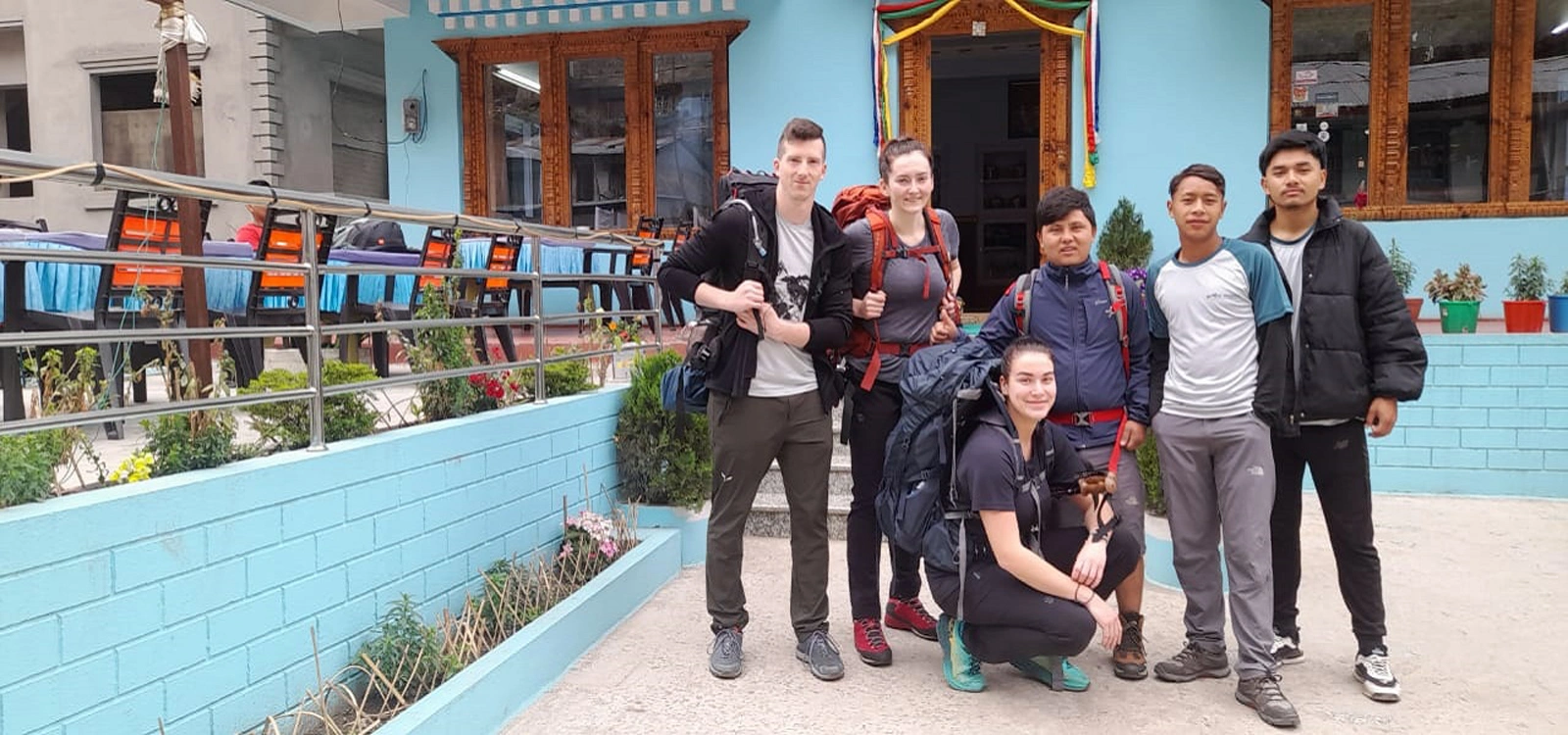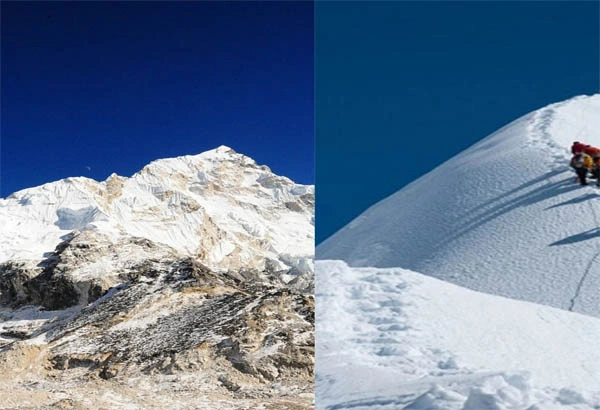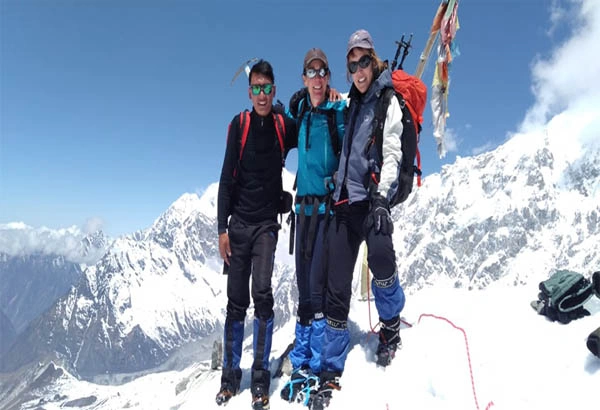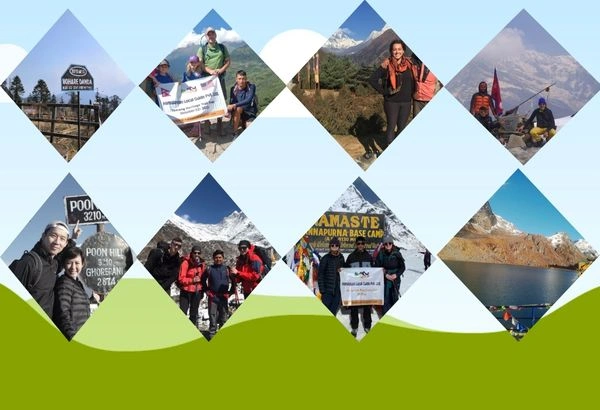Journey to Langtang Valley known as a hidden valley in the entire Langtang National Park and linked to the Tibetan border that has been prohibited by the government of Nepal which has opened for national and international trekkers as a sacred area tourism destination, one of the 7200 meters highest mountain lies in the region called Langtang lirung. The trek of Langtang National Park has been so popular in the last decade that find the Red and white pandas alone in the trekking to Langtang Valley. Dhunche is the District headquartering of the region or Rasuwa District.
The Langtang Region Trekking offers the best mountain views of Ganesh Himal, Tibet Himal, Langtang Lirung, Dorjee Lakpa Himal, Yala peaks, lakes, and other Himalayan scenic views. The flora and fauna are available from highland trees to snowland shrubs. Other animals can be found besides Pandas in the National parks. The trekkers need to check in and out at the entry and existing points and also need to pay for entrance but of course not for exit, though you need to stamp on check out.
Please kindly check the following day-to-day sample Itinerary of the Langtang Valley Trek.
Day 01: Drive from Kathmandu to Syabrubesi (1462 meters / 4796 feet) 7/8 Hours.
Day 02: Trek from Syabrubesi to Lama Hotel (2450m / 8038 feet) 6/7 Hours.
Day 03: Trek from Lama Hotel to Langtang village (3560m / 11679 ft) 5/6 Hours.
Day 04: Trek from Langtang village to Kyanjin Gompa (3870m /12696 ft) 2/3 Hours
Day 05: Exploration day at Kyanjin Gompa
Day 06: Kyanjin Gompa – Lama Hotel (2450m / 8038 ft) 6/7 Hours
Day 07: Lama Hotel - Syabrubesi (1462 meters / 4796 feet) 4/5 Hours.
Day 08: Drive back to Kathmandu 7/8 Hours Drive.
Trip Highlights of Langtang Valley
- Langtang National Park checkpoint Dunche (Army Camp).
- Tamang and Tibetan ethnicity, culture, and village.
- Buddhist monasteries at Khyanjin Gompa.
- Explore to Cheese factory at Khyanjin Gompa.
- Mountain View likes Langtang Lirung, Yala Peak, Dorje Lakpa, and many more, etc.
- Crossing Beautiful Bhote Koshi River and Langtang Valley Khola.
- Delightful village passes like Bamboo, lama hotel, Langtang, and Khyanjin Gompa.
- Langtang National Park has wild Animals like monkeys, Red pandas, mountain Goats, and many more.
- An earthquake damaged Langtang Village.
- Sunrise and sunset view from Khynjing Ri(4810m) and Tserko Ri (4998m).
- Visit to Langsisha kharka.
BEST SEASON FOR LANGTANG REGION TREKKING
March – April – May (Spring Season)
This is the best time to do this Trek. The weather is very good throughout the trek. Spectacular views of Mt. Manaslu, Ganesh Himal, Langtang II, Langtang Lirung, Dorje Lakpa, Langsisa Peak, Yala Peak, and many smaller white snow-capped mountains etc.
The temperatures will be increasing from the middle of March and with blue skies, white-snowcapped will be seen at their occasion. So many Travelers often succeed their climber in this time. On the way trip, the Nepalese National flowers will be blossom-like; red, white, and pink colors with luscious green and dense forest.
June – July – August (Summer/Monsoon Season)
If you would like to do the Langtang Region trek in Nepal between June to August, it is summer/Monsoon Season. Summer Season Falls in the months from the end of June to August. This time is the hottest and rainfalls with a variety of vegetation blossoms during this season, the Valley will be green and different view than the spring and Autumn seasons. While you are going to travel, Summer Season you have to be more careful with trekking trails, it might be Muddy and Slippery. It will be regularly raining and hottest during this season.
The temperature during the days 15 to 25°C, will get colder at night and morning times, Temperature will be less than 8°C, and most of the morning time will see blue sky with white snow-capped Mountains.
September – October – November (Autumn Season)
Another best time to do for the Langtang. This season is the peak for trekkers due to the good weather conditions. As monsoon season slowly ends, the best trekking climate sets itself. The temperature will go up to 15 degrees in the daytime and, during the night time will be down to 3 to 5 degrees. This time is while travelers relax with natural views and culture. It is highly recommended as it is the best time to go for Langtang Valley Trek.
December – January – February (Winter Season)
The winter season trek to Langtang region is famous season as the March – April – May to September – October – November. The places along the Langtang Valley Trek will be cold during the winter season but at that time will be an amazing trip. The temperature of Langtang Valley Trek can be around as low as -10°C which tempts travelers to visit this region. It might snow falls and the Ground will be snow on the trails.
The Coldest time Starts from December to early February, after overdue February, the Climate will slowly get warmer temperatures get cold dropping to -2°C to - 5°C at high altitudes. When the sun comes up, the daytime gets warmer, and the blue sky with stunning all Himalayas views.
Accommodations during the
The accommodations during the trip, all accommodations are on the basic twin and sharing. Our local trekking guide team leader will be managing the beautiful common room. If possible he will try to manage the best room with attached bathrooms. About the attached bathrooms it's very difficult to get in the Himalayas regions, most of the mountain areas have just a common room and we must share the toilet and bathroom with other clients. The single rooms are available in the lower altitude Himalayas regions. But it is not possible to get a single room in the higher elevations; you must share with other people.
Meals
During the Trek, all kinds of meals will be provided in the Langtang region, you can take pleasure in Nepalese traditional foods like: Nepali Dal Bhat and many typical foods are available in this region. Also, they have special menus; you can choose the many different kinds of European, Italian, Chinese, and Indian foods available during the journey.
Breakfast
You can choose by a menu of your breakfast: options such as French toast with (jam, Honey and Butter), muesli, Oatmeal, Corn Flakes, cereal, hash browns, any style of eggs you would like, Gurung Bread, Tibetan Bread with (jam, honey and Pea abutter), pancake, puffy, and round and tsampa porridge and chapatti with any kinds of Tea.
Lunch
Lunchtime; you will have the opportunity to special delicious food like: Thukpa, vegetable Noodle soup, Chicken Noodle soup, mushroom soup, and fried veg. Cheese potatoes, veg eggs fried noodles, eggs. Vegetables fried macaroni, Momo (dumplings), eggs. Veg fried rice, Nepali Dal Bhat set (Dal Bhat power 24 hours), and many many more items.
Dinner
You can choose by the menu: a menu that's similar to the options you had at lunch break time: Stews, Pizza, Thukpa, Fried Noodles, Noodle soup, macaroni, fried potatoes, fried rice, momo (dumplings), spring roll, Dal Bhat set, spaghetti and many much more items, etc.
Safe Drinking Water
In the Langtang region, you will get normal water from the Tap or river. For this water you must use purification medicine or a filtering hand pump, also you get boiled and bottles of water are available at lodges. While you hiking in the mountain regions, you should drink normally 4 to 5 liters per day.
Travel insurance requirement
Travel insurance is compulsory to have to join an adventure journey in the Nepal Himalayas. We do not sell travel insurance here; we would be pleased to recommend some of our preferred providers. While you purchase a travel insurance privacy policy, be sure it covers the following contingencies:
- Medical treatment and evacuation.
- Repatriation
- Emergency helicopter rescue.
- Trekking and climbing.
You need to get a higher tier of travel insurance in order to have these activities covered at a high elevation. For the EBC trekking, we recommend securing insurance to cover your trip activities of more than 6,000m/19,685 feet. Luckily travel insurance policies are easy to get online and you can compare coverage between packages rapidly and easily. The trekking under the defense of travel insurance wills an assurance of your quiet of mind and protects you in the not likely incident that you need to file maintain.
AMS – Acute Mountain Sickness
Acute Mountains Sickness (AMS) or altitude sickness is one of the risks even when traveling at a high elevation. The region following getting AMS is that the body doesn't change at the lower altitude, and the result can be boring. So, it is most important to take appropriate measures on the time. Ahead an altitude with a constant pace and good acclimatization days will help reduce the chances of getting AMS.
Likewise, you also have to keep yourself hydrated during the trip. As a result, drink very much water and keep away from alcoholic drinks as they dehydrate the body. If you are planning to travel in the local adventure journey of Nepal than do remain about things in your mind.
Note: if you have any symptoms of altitude sickness then keep contacting with your local trekking guide our guide is trained and he knows how to solve the (AMS) Acute mountain sickness.
The main Symptoms of altitude sickness
- Headache
- Nausea
- Vomiting
- Fatigue
- Difficulty sleeping
- Dizziness
- Lightheadedness
- Loss of appetite
- Difficult to breath
Preventive measures
- Do not drink alcoholic beverages in high-elevation
- Keep yourself hydrated
- Do the Acclimatize low altitude to a high altitude and back to sleep at the low altitude.
- Do not achieve more than 500 meters in a day
- Do not walk very fast at the high altitude.
- Walk slowly on the high elevations and keep walking.
- Do not walk alone on the way.
- Inform your guide as soon as if get any high altitude sickness.
- Drink a lot of boiled water and hot tea.
- Take garlic soup and Ginger tea, it is high altitude sickness medicine.
Safety, Security, and Satisfaction
Himalayan Local Guide guarantees our valuable clients (Safety, security,y, and Satisfaction). The safety is most important concern for us. For the trip, we will be carrying all necessary trekking gear, equipment, and the first–aid – kit box. Our professional leaders and local trekking guides have experienced knowledge and have wide first-aid training. When we are hiking on the way, if a trekker gets (AMS) – Acute Mountain sickness due to the altitude, just normally: Headache, Vomiting, Dizziness, fatigue, or difficulty breathing then you can share it with our leader. Our local trekking guide leader will give you suggestions about the AMS – Acute mountain sickness how to medicament and he does very much help then, if he/she can't do anything then trekkers must decide, will further continue as health is most important. Just in case of emergency, the rescue helicopter will always be stand to take you back to the hospital from the high elevation. No worries about it, we are always here for your services and our times are always in the mountains with mountain lovers and hikers.
Passport and Visa
Travelers/trekkers to Nepal will need to make a visa when you arrive at Tribhuvan International Airport or you can get a visa from your country of Nepal embassy. Most of the travelers will be able to get an upon-arrival visa at Kathmandu Airport. Please kindly make sure that your passport is valid for at least six months from the date of your arrival, beginning with the date that you enter Nepal. You must also bring the extra Passport-size photos of you.
On Arrival Visa Fee
15 Days – 30 U$D
30 Days – 50 U$D
90 Days – 125 U$D
Necessary document
- Insurance paper.
- Passport.
- Passport-sized Photos.
- Tims Card (Trekking Information Management System Card.
- Langtang National Park entry Fee.
Langtang Valley Trek with professional local trekking guide and Porters team
Himalayan local guide Pvt. Ltd provides knowledge expert government registered trained license holder Guides for your Everest region trek who are from the same place and know the regional trekking area very well. Our local trekking guide and porter or porters cum guide are too strong and knowledgeable about the whereabouts of the place, its history, culture, floras, faunas, etc.
We are always here for your service if you are interested in trekking to these mountain areas. We will be delighted to guide you to these heavenly areas where you can rejoice and spend your leisure time with beautiful mountain sceneries and hills. It will be a lifetime local adventure experience for you.
Last-minute booking with us
The last-minute booking with us can be made by any intended trekkers/travelers the day before your journey starts. As well as, for whatever reason Himalayan Local Guide P. Ltd has a special providing for a last - minute bookings. The payment should be made 100% percent within 24 hours if we accept it. We do try our best to manage a trek at any time, and if you are booking this for the last minute then, booking can be made directly through the online form or you can send us via email, messages on WhatsApp, Viber, or call on Cell Phone. Responsible Travel:
"Come as a Guest"
"Go as a Friend"
We have a strong and expert loyalty to environmental suitability for protecting our delicate ecosystems. Without a doubt, the tourism sector has brought lots of optimistic impacts in terms of wealth generation, service opportunities, infrastructure, education healthcare, etc. However, with a swell of trekkers harmful impact has also become noticeable on society and the environment. Please kindly ensure you think about the environment and are not carefully confused moreover, Himalayan Local Guide (P). Ltd. works together with (KEEP) Kathmandu Environmental Education Project and organizes eco-friendly trips for the most part environmentally responsive and culturally pleasing that get together expectations of both traveler's/trekker's and Communities.
TREKKING EQUIPMENT LIST
Body Clothing
- Sleeping Bag
- Down Jacket
- Three pairs of trekking t-shirts
- Long-sleeved shirts
- Thermal Shirt for Colder place
- Fleece Jacket
- Warm wool Sweaters
- Waterproof and windproof Jacket
- Cotton Trekking pants with folding
- Waterproof and windproof pants
Head and Face
- Sun Hat
- Wool or fleece hat
- Headlight
- Sunglass
- Sunscreen 50
- Face wipes and towel
List of Footwear
- Trekking Boats
- ¾ Paris Preferably Cotton Socks
- Crampon
- One pair of extra sports shoes
- Necessary Gears:
- Gaiters just in case if snow
- Gloves and Thick Gloves
- Big rucksack above the 40 L
- Waterproof Bag Cover
- Rain Coat
- Trekking Pole (if you needed)
- Laundry Soap
- Shampoo
- Toothbrush
- Toilet papers
- Water pearls
- Bottle for drinking water
- Pen and Note Book
- Copy and Tourist Guide Book
- Camera
- Battery charger
- Memory card
- Cell Phone and Charger
- Money Wallet
- Altimeters and Playing card
First aid Kid
- Diamox
- Cotton bandages
- Paracetamol
- Painkillers
- Loperamide to Control diarrhea (just in case).
- Water purified tablets
- Lozenges
- Elastic bandages
- Thermometer
- Moleskin and sling.




